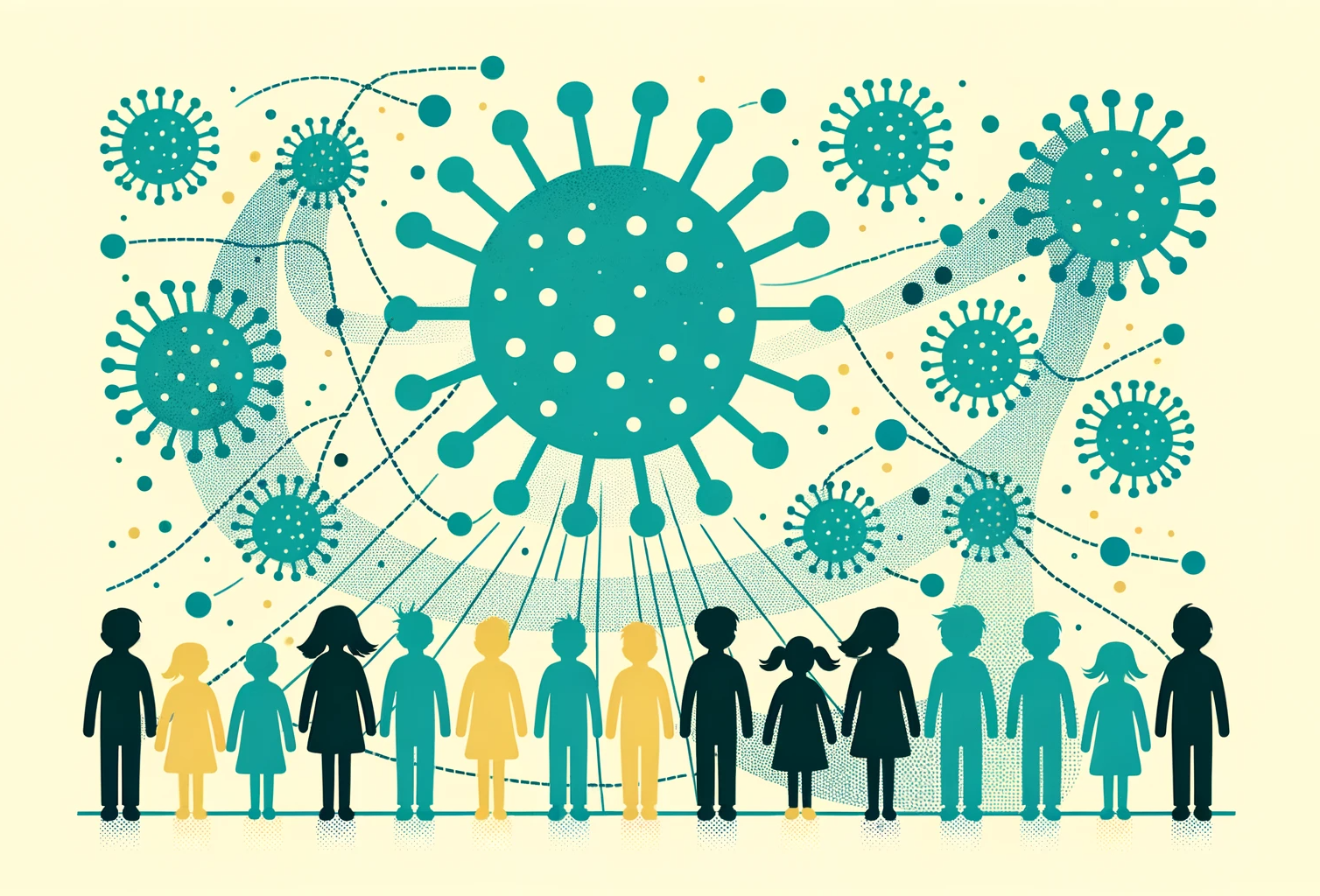In a cohort study published in the Journal of American Medical Association (JAMA) Pediatrics, researchers from California examined the children who tested positive for coronavirus disease 2019 (COVID-19). They evaluated the duration of infectivity (culturable virus shedding) of the causative virus severe acute respiratory syndrome coronavirus 2 (SARS-CoV-2) and its association with vaccination status. They found that the median duration of infectivity was three days in children positive with the SARS-CoV-2 Omicron variant. Further, no association was found between the duration of infectivity and the vaccination status of children.
 Study: Duration of SARS-CoV-2 Culturable Virus Shedding in Children. Image Credit: Created with the assistance of DALL·E 3
Study: Duration of SARS-CoV-2 Culturable Virus Shedding in Children. Image Credit: Created with the assistance of DALL·E 3
Understanding the Problem at Hand
The quarantine and self-isolation policies implemented to curb COVID-19 in school-going children are more stringent than those for other viral diseases and tend to interrupt their education. Additionally, these policies are supported by limited evidence as the duration of infectivity of SARS-CoV-2 in children is still unclear. While a previous study has suggested that children’s nasopharyngeal samples have a 50% lower probability of containing culturable viruses as compared to adults, the shedding of the Omicron variant has not been studied so far in children. The present study aimed to address this gap by investigating the potential link between the duration of infectivity and vaccination or booster status in children infected with the Omicron variant.
Unpacking the Methodology
The cohort included 76 children of age 7–18 years (50% males and 50% females) whose results were positive in the polymerase chain reaction-based test for COVID-19. Forty-one of these participants were in the age group of 7–12 years.
The day of the positive test result was considered day 0. Over the next 10 days, five home visits were conducted, and pharyngeal swabs were collected from the patients each time. Variant assessment was done in the laboratory. The race, ethnicity, demographics, and vaccination status of the patients were recorded additionally. About 68.4% of the participants were found to be vaccinated.
As the primary outcome, the cytopathic effect (CPE, the structural change in the host cell caused by viral infection) was determined through sample culture in growth media. Bright-field microscopy images were taken after 6, 8, and 10 days after inoculation. A sample was considered CPE positive if, on day 6, 30% or more of its images showed CPE characteristics. If the results were inconclusive with day-6 images, those from days 8 and 10 were used to assess CPE.
Measuring Infectivity Over Time
The infectivity over time was visualized using Kaplan-Meier curves. The relationship between the duration of infectivity and vaccination status was determined using Cox proportional hazard regression models. While the origin of observation was day 0, failure was considered when CPE was negative. For sensitivity analysis, the date of onset of symptoms was taken as the origin of observation. The statistical analysis was performed using Stata version 17.
Key Takeaways and Implications
Among the 76 participants, only 14 were found to be infectious on day 5, while 3 were found to be infectious on day 10. The median duration of infectivity was estimated to be three days in both vaccinated and unvaccinated children. Thus, no association was found between the duration of infectivity and vaccination status, irrespective of the demographics. Even among the vaccinated children, the duration of infectivity was similar in those who received a booster and those who did not. The sensitivity analysis showed similar results.
Next Steps for Research
The results of the present study corroborate with a previous study evaluating the association between infectivity duration and vaccination status in Omicron-infected adults. However, the study is limited by its small sample size, the potential for nonresponse bias, and the use of CPE as a proxy for true infectivity. Further research needs to be conducted to include children who did not get tested for COVID-19 as well as those positive for other variants of SARS-CoV-2.
How This Affects Schooling
The findings of this study have important implications for the policies implemented in school settings. While the median duration of infectivity (three days) estimated in this study supports the current 5-day isolation policy after a positive test result, the lack of association between vaccination and duration of infectivity also suggests that vaccination or booster status need not be considered when developing return-to-school policies.